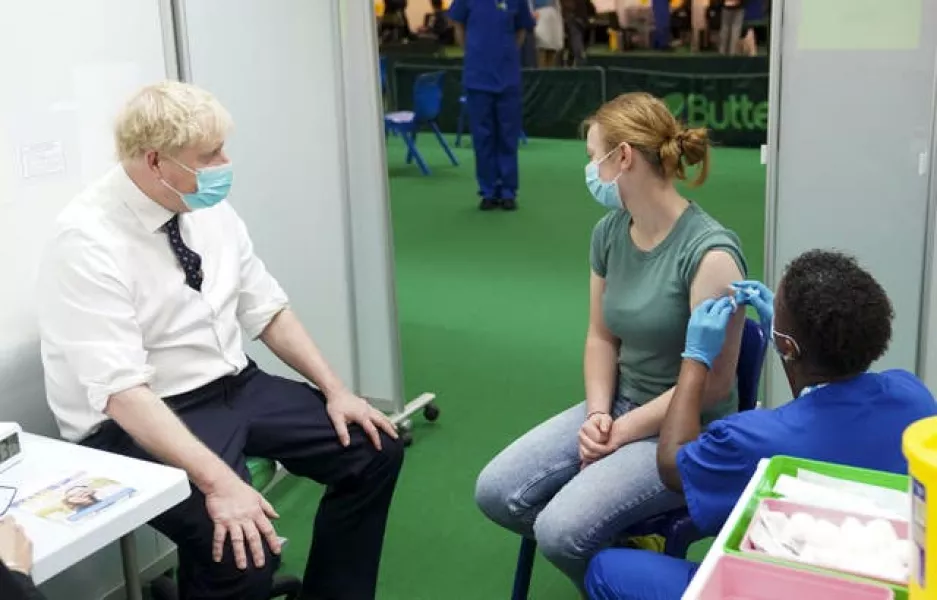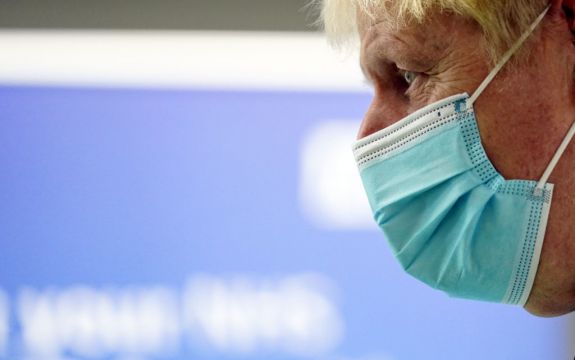Multiple hospitals across Britain have declared critical incidents amid warnings the NHS is “in a state of crisis” in the face of staff shortages caused by the coronavirus.
British prime minister Boris Johnson warned on Monday that the Omicron variant “continues to surge through the country” and pressure on the NHS would last for weeks.
But cracks were already beginning to show as six NHS trusts had reportedly declared “critical incidents” – where bosses are concerned they may not be able to provide priority services – on Monday evening.
Chris Hopson, chief executive of NHS Providers – which represents health trusts, said “a number of trusts across country have declared internal critical incidents over the last few days”.
One of those was United Lincolnshire Hospitals NHS Trust, where “extreme and unprecedented” staff shortages were expected to result in “compromised care”.
'Internal critical incident'
Chief executive of University Hospitals of Morecambe Bay, Aaron Cummins, confirmed in a statement that the trust had declared an “internal critical incident”.
In an internal message from Mr Cummins shared on Twitter, he told staff that “sadly, despite everyone’s best efforts, many of our patients are still receiving a level of care and experience that falls below the level of standards we would like”.
He added in his statement that some non-urgent operations and procedures would be suspended.
He said the escalation “allows us to be able to take additional steps to maintain safe services for our patients and help us cope with the growing pressures”.

The BBC and The Guardian reported that at least six trusts had now issued the alerts.
Earlier, on a visit to a vaccination centre in Buckinghamshire, Mr Johnson said: “I think we’ve got to recognise that the pressure on our NHS, on our hospitals, is going to be considerable in the course of the next couple of weeks, and maybe more.”
Mr Johnson said he appreciated the pressure NHS staff were under, and that it was “vital that we make sure that we help them by trying to contain the pandemic” by getting vaccinated and following plan B measures.
And he warned it would be “absolute folly to say that this thing is all over now bar the shouting”.
Currently @MKHospital is very pressured but we are not yet at the point of needing to declare a critical incident. Patients with Covid have - doubled over the past week & staff sickness also continues to increase. We are preparing for this to get worse 1/2
— Joe Harrison (@JoeHMK) January 3, 2022
Advertisement
The chief executive of the NHS Confederation, Matthew Taylor, said that “in many parts of the health service, we are currently in a state of crisis”.
“Some hospitals are making urgent calls to exhausted staff to give up rest days and leave to enable them to sustain core services,” he wrote in a blog published on Monday.
He added that many hospitals had been forced to ban visitors to reduce the spread of infection, while “NHS England is continuing to plan for surge capacity”.
“Community and social care services, which were already massively overstretched, are at breaking point.
“In many areas, ambulance services are unable to meet their target response times,” he added.
Mr Taylor said that primary care had to add caring for Covid-19 patients and trying to keep them out of hospitals to the work driving the booster programme, as well as “unprecedented underlying demand (driven in part by the millions of unwell people waiting for appointments and operations)”.
He added the Omicron variant’s impact was not yet known, and that while data around the variant “was looking positive”, it was not yet reliable.
It comes as a further 157,758 lab-confirmed Covid-19 cases were recorded in England and Scotland as of 9am on Monday. Daily cases in Scotland were the highest on record at 20,217, according to the latest data.
A further 42 people had died in England within 28 days of testing positive for Covid-19. Separate figures published by the UK Office for National Statistics show there have now been 174,000 deaths registered in the UK where Covid-19 was mentioned on the death certificate.
In England, there were 14,210 people in hospital with coronavirus as of 8am on Monday. This had risen by 5,736 when compared to the week before.







